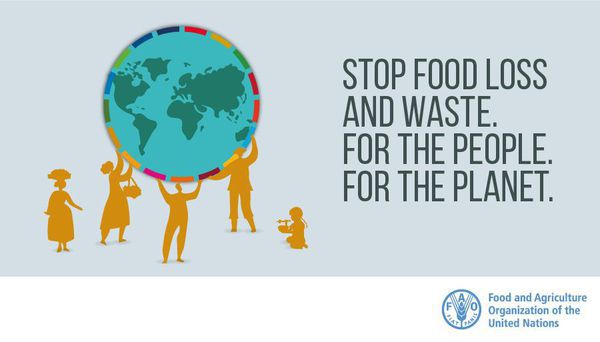Événement Journée mondiale
International Day of Awareness of Food Loss and Waste 2020
On 29 September 2020, the UN celebrated the first observance of the International Day of Awareness of Food Loss and Waste, recognizing the fundamental role that sustainable food production plays in promoting food security and nutrition. Across global food systems, food loss and waste is a widespread issue, posing a challenge to food security, food safety, the economy, and environmental sustainability. Actions are required globally and locally to maximize the use of the food we produce.
About
On 29 September 2020, the UN celebrated the first observance of the International Day of Awareness of Food Loss and Waste, recognizing the fundamental role that sustainable food production plays in promoting food security and nutrition.
It also comes during the global COVID-19 pandemic that has brought about a global wake-up on the need to transform and rebalance the way our food is produced and consumed. The pandemic continues to generate significant challenges to food security in many countries. Disruptions in supply chains, quarantine measures, the closure of much of the hospitality industry and schools have resulted in a loss of markets for producers and distributors, making the situation even more challenging while dealing with high levels of food waste.
At the downstream end of the supply chain, with panic buying and stockpiling by consumers, supermarkets, which are often key donors to food banks, struggled to keep their shelves stocked and are unable to donate food. Meanwhile, much of the food purchased by households was discarded as food waste because of a misunderstanding of date marking and improper storage of these household food items.
We need to be aware of the importance of the issue of food loss and waste in order to promote and implement our global efforts towards resolving it.

Reducing Food Loss and Waste for a Healthier Planet
Reducing food losses and waste is critical to achieving the sustainable development goals. According to the United Nations and the Food and Agriculture Organization (FAO), globally, around 14% of food produced is lost between harvest and retail. Significant quantities are also wasted in retail and at the consumption level. Around 38% of total energy consumption in the global food system is also utilized to produce food that is either lost or wasted. In addition, it takes seeds, soil and the labor of farmers to produce food, not to mention the fuel that is needed to transport it. All of these resources are lost when food is wasted. Furthermore, the disposal of food loss and waste in landfills leads to greenhouse gas emissions, contributing to climate change. Policymakers can improve the chances of achieving climate goals and limiting global warming to 1.5°C by making more specific commitments to transforming national food systems.
Our dedicated page on Food Loss and Waste dives deeper into issues at the nexus of food systems and the environment. It also lists relevant actions and actors in the Geneva region. Find out more below.
Events
Many events related to food loss and waste were held on the occasion of World Food Day on 16 October 2020.

